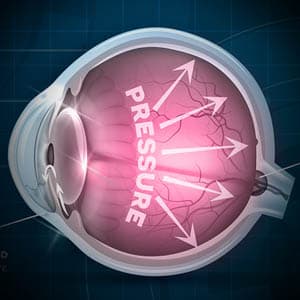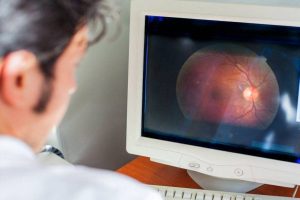Glaucoma is a leading cause of vision loss and blindness worldwide, affecting more than 60 million people globally.
Early detection and treatment are crucial for preventing vision loss in patients with glaucoma.
This is where smart contact lenses come into play.
What are Smart Contact Lenses?
Smart contact lenses are an innovative technology that employ tiny sensors to collect data about the pressure inside the eye. By accurately measuring intraocular pressure (IOP), they can monitor any changes and detect glaucoma in its early stages.
These lenses are referred to as “theranostic devices,” meaning they can both diagnose and treat the disease.
Another benefit of smart contact lenses is that they can predict whether a patient’s disease will progress slowly or rapidly. This is one of the biggest challenges in managing glaucoma.
According to a recent study published in the Journal of Ophthalmology, electronic signals from smart contact lenses can be used to predict which patients may have a faster-advancing form of the disease.
How Do Smart Contact Lenses Work?
Smart contact lenses use sensing plates surrounded by ultra-soft air dielectric film to respond to changes in IOP. When the sensors detect a buildup of pressure in the eye, they send an electrical signal that triggers the lens to deliver anti-glaucoma medication.
The medication is stored in a hydrogel layer within the lens, and reduces IOP by increasing the amount of fluid that drains from the eye.
In addition to their potential as a treatment option, smart contact lenses can also play a crucial role in early detection. It is estimated that more than 3 million Americans have glaucoma, yet only half are aware of it.
The most common type, primary open-angle glaucoma, usually has no obvious symptoms in its early stages. By monitoring IOP and sending data directly to smartphones or computers, smart contact lenses can help patients identify problems earlier and prevent or minimize vision loss.
The challenge with smart contact lenses is making them affordable and accessible enough for widespread use. Contact lenses can be expensive, and they only work if worn daily. However, the benefits of smart contact lenses for early detection and personalized treatment options make them a promising technology for the future of glaucoma treatment.
If you or a loved one has been diagnosed with glaucoma, make sure to follow up with your optometrist for regular monitoring.
While there are still challenges to overcome, the future of glaucoma treatment looks promising with the development of smart contact lenses and other treatments.










